

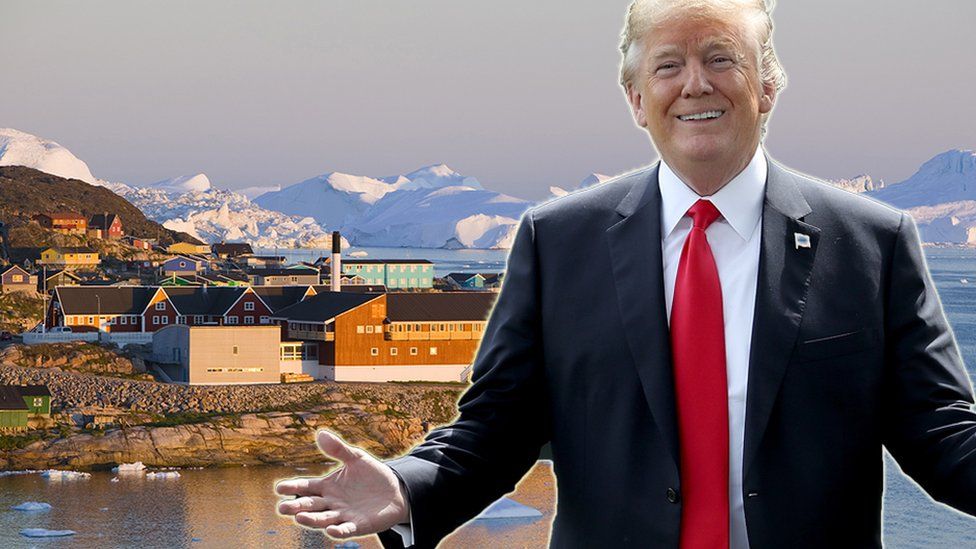
The United States President-elect, Donald Trump, has reignited his interest in purchasing Greenland from Denmark, prompting backlash from both Danish and Greenlandic officials. This offer is not new, as Trump had previously expressed interest in buying Greenland during his first term in office. However, his recent insistence on the acquisition has sparked conversations and concerns about the role of the US in international relations, as well as the island's strategic value for the US.
Trump's Revived Interest in Buying Greenland: A Deeper Dive
Background
In 2019, then-President Donald Trump expressed interest in purchasing Greenland, an autonomous territory of Denmark. The move sparked controversy and raised questions about the US's role in international relations and Greenland's strategic value.
Greenland is the world's largest non-continental island, covering over 2.2 million square kilometers. It is home to approximately 56,000 people, primarily Inuit and Danish settlers. The island has significant natural resources, including rare earth minerals, uranium, and hydrocarbons.
Trump's Offer and Denmark's Response
Trump's offer to buy Greenland was met with swift rejection from Danish Prime Minister Mette Frederiksen, who stated that "Greenland is not for sale." Greenland's premier, Kim Kielsen, echoed this sentiment, saying, "Greenland is not a real estate deal."
Trump's interest in Greenland stemmed from his belief that it could provide the US with a strategic advantage in the Arctic, where it competes with Russia and China for influence. However, critics argued that buying Greenland would be an expensive and unnecessary investment.
International Reactions
Trump's Greenland proposal drew mixed reactions internationally. Some supported the idea, seeing it as a way to strengthen the US-Danish alliance. Others condemned it, calling it an attempt to purchase a sovereign territory and a violation of international law.
Top 5 FAQs and Answers
1. Why did Trump want to buy Greenland?
Trump believed that Greenland could provide the US with a strategic advantage in the Arctic and access to its natural resources.
2. Why did Denmark reject Trump's offer?
Denmark and Greenland both believe that Greenland is not for sale and has the right to self-determination.
3. Has the US ever tried to buy Greenland before?
Yes. In 1867, the US Secretary of State, William Seward, offered to purchase Greenland for $10 million, but the Danish government rejected the proposal.
4. Is Greenland strategically important?
Yes. Greenland is located near the North Pole and controls access to the Arctic Ocean, making it strategically important for military and economic reasons.
5. What are the current relations between the US and Greenland?
The US and Greenland have a long-standing relationship, with the US maintaining a military base at Thule Air Force Base. The two countries cooperate on Arctic issues, including climate change and scientific research.

The makers of the upcoming romantic comedy ‘Dragon’ have announced that they are pushing the release of the film from February 14 to February 21 due to other major releases in the Tamil film industry. The decision comes after the makers of another film, ‘Nilavukku Enmel Ennadi Kobam’, also announced a similar move. ‘Dragon’ features an impressive cast, including Pradeep Ranganathan, K S Ravi Kumar, Gautham Vasudev Menon, Mysskin and VJ Siddhu, among others. This extra time will not only help improve the product but also give the makers more time to promote the film.

Organisers in India are using artificial intelligence to manage the world's largest human gathering, the Kumbh Mela, in order to prevent deadly stampedes from occurring. With an estimated 400 million pilgrims expected to attend the festival, authorities are hoping that this technology will help improve their record of crowd management. By gathering accurate estimates of crowd sizes, they can be better prepared for potential trouble and ensure that every pilgrim can fulfill their spiritual duties safely.
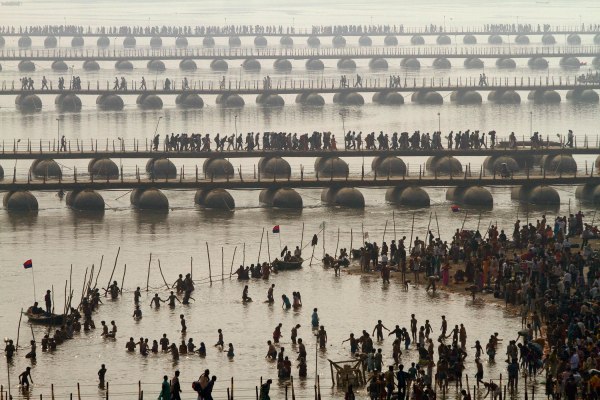
The 45-day long Kumbh Mela festival, known as the largest religious gathering in the world, has begun in the Indian city of Prayagraj. The festival, held once every 12 years, has attracted an estimated 400 million attendees this year due to a rare astronomical alignment. With millions taking a holy dip on the first day, the festival has garnered international attention and can even be seen from space.
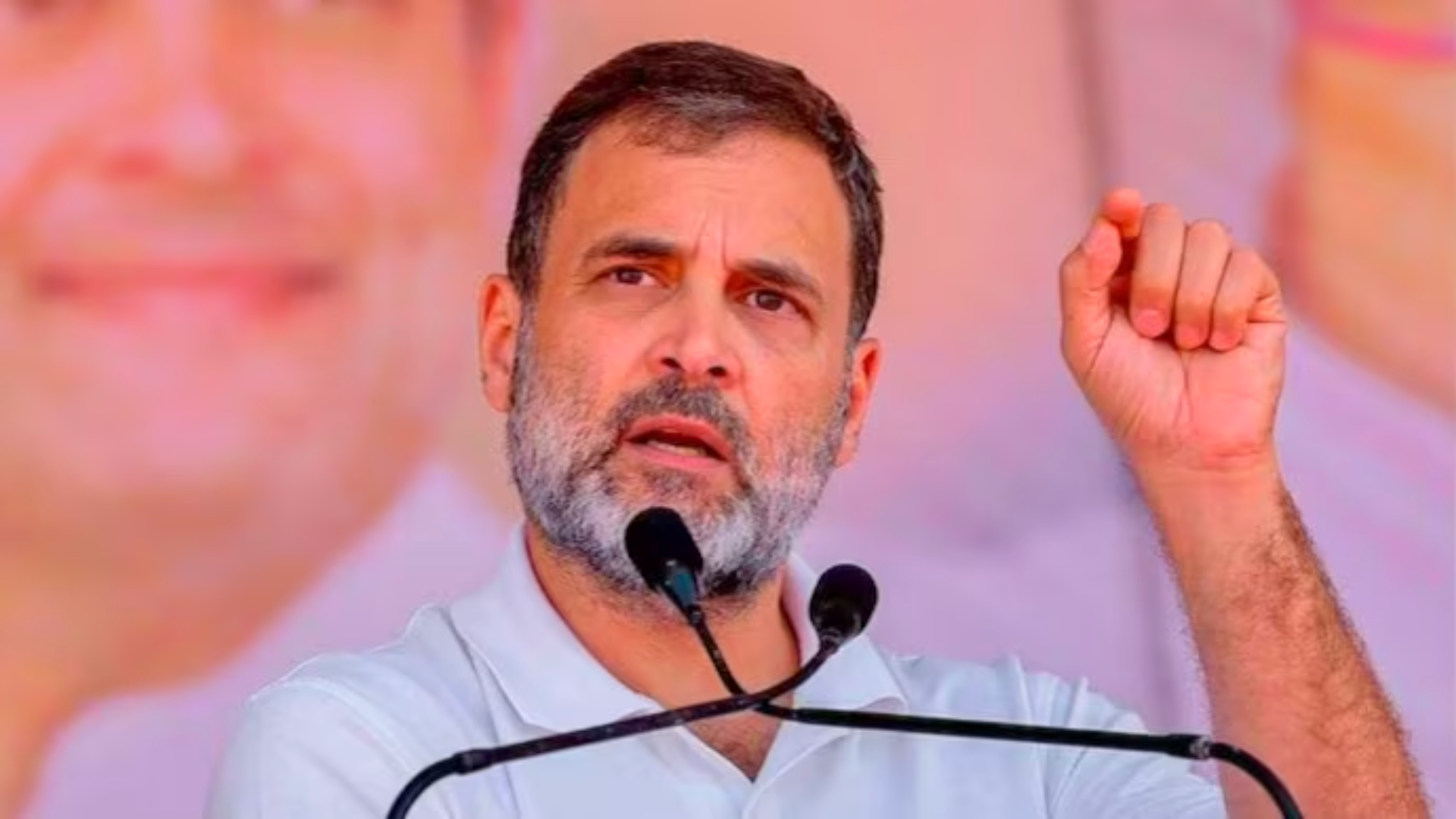
Indian leaders Rahul and Priyanka Gandhi took to social media to pay their respects to the soldiers who lost their lives in a tragic mishap in Bandipora district of Jammu and Kashmir. The accident occurred due to inclement weather and poor visibility, further worsening the tensions in the conflict-ridden region. The injured soldiers were immediately rushed to nearby hospitals for medical care, with three succumbing to their injuries. This unfortunate incident highlights the dangers faced by Army personnel in their line of duty in J&K.

Following a long-awaited ceasefire deal, Israel postponed the Cabinet vote due to a last-minute dispute with Hamas. While this drew criticism from world leaders, Netanyahu's government coalition raised concerns about the implementation of the deal. Amidst the tension, Egyptian Foreign Minister Abdelatty urged both parties to implement the agreement without any further delay. Netanyahu's office accused Hamas of reneging on parts of the deal, but the militant group denied this claim. Amidst the political jostling, Israel's hardline national security minister threatened to quit the government if it approves the ceasefire.
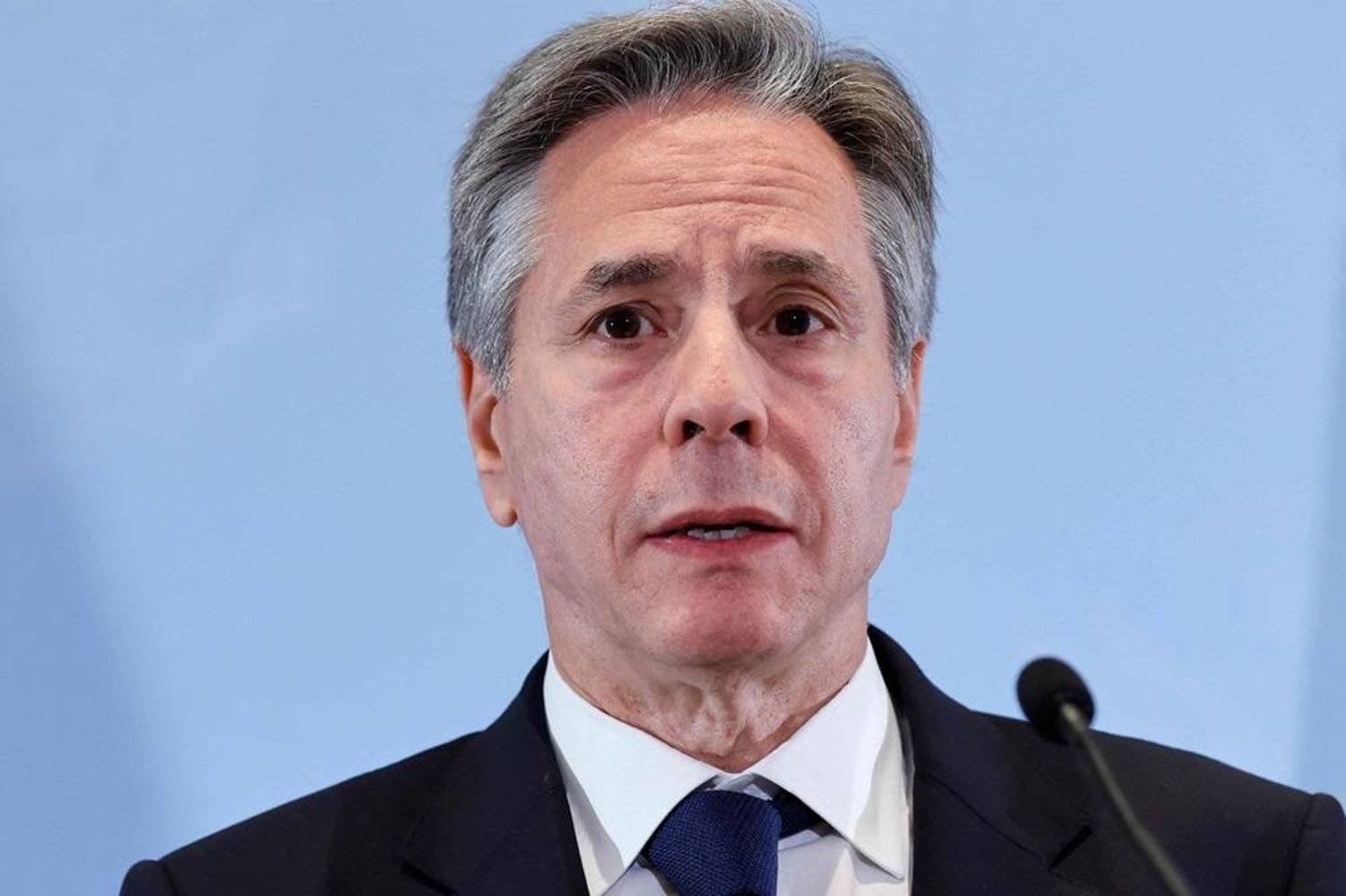
At a press briefing in the State Department, U.S. Secretary of State Antony Blinken was repeatedly interrupted by hecklers, who denounced U.S. policy on the Israel-Gaza conflict. The interruptions occurred as Blinken discussed a recent ceasefire and hostage deal in Gaza. This display highlights the ongoing tensions and divisions surrounding the Israel-Gaza conflict and the challenges facing the Biden administration in navigating this complex issue.
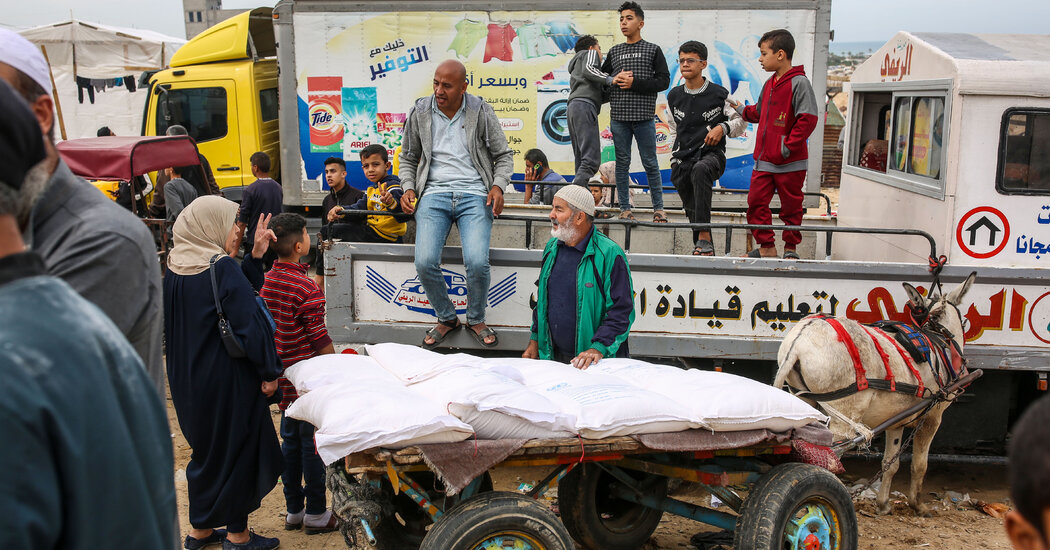
After months of negotiations mediated by Egypt and Qatar, a deal has been reached between Israel and Hamas to end the war in Gaza. The ceasefire, set to last for six weeks, will see the exchange of hostages for Palestinian detainees, the return of displaced Palestinians to their homes, and the repositioning of Israeli forces. The agreement, facilitated by the United States, has been welcomed by President Joe Biden and President-elect Donald Trump. Israel's security cabinet is expected to approve the deal on Thursday.

Indian Prime Minister Narendra Modi commissioned three Indian-made naval vessels, including a destroyer, a frigate, and a submarine, highlighting the country's growing self-reliance in defence manufacturing. During his address, PM Modi emphasized the importance of protecting territorial waters, ensuring freedom of navigation, and securing trade routes. He also highlighted India's expanding role in the global defence sector, noting the country's increasing exports and partnerships. The commissioned vessels, equipped with advanced technology and significant indigenous content, reflect India's growing ambition in strengthening its naval capabilities.

Police and protesters clashed violently in China's Shaanxi province over the death of a 17-year-old student, Dang Changxin, who was found dead in his dormitory on January 2. The protests were triggered by allegations of a cover-up by local authorities, who reportedly closed the case within 24 hours and did not allow the student's mother to see his body. The non-for-profit group Human Rights In China claims suspicious circumstances surrounding Dang's death, including witness reports of a struggle in his dormitory and the suggestion that he was pushed from the roof.